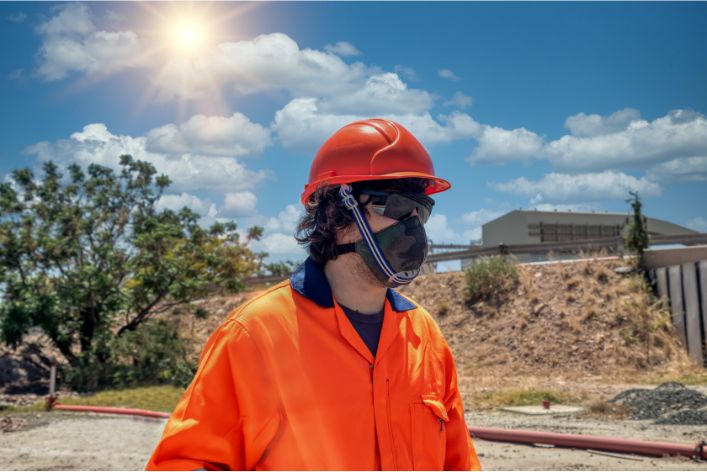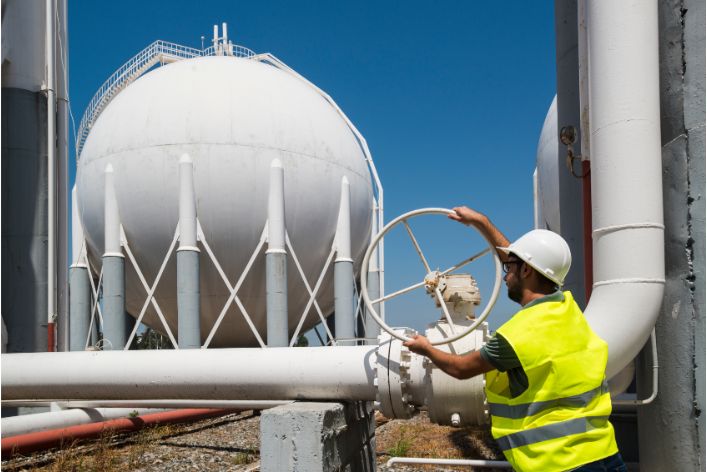Introduction to Offshore Job Roles in Nigeria’s Oil and Gas Industry
Nigeria’s oil and gas sector plays a crucial role in its economy.
Offshore job roles are pivotal in enhancing oil exploration and production.
Many companies operate in offshore environments due to their resources.
This section explores various offshore job roles in Nigeria.
We’ll also discuss the skills and qualifications required for these positions.
Importance of Offshore Jobs
Offshore jobs contribute significantly to Nigeria’s GDP.
They create numerous employment opportunities for skilled workers.
Moreover, these roles help in technological advancements within the industry.
Types of Offshore Job Roles
- Field Engineers manage drilling and production operations.
- Safety Officers ensure compliance with health and safety regulations.
- Marine Personnel operate and maintain support vessels.
- Geologists analyze geological data for exploration.
Required Skills and Qualifications
Relevant educational backgrounds enhance job prospects in this field.
Engineering degrees are often necessary for technical roles.
Certifications from recognized institutions strengthen qualifications.
Experience in similar domains can also provide a competitive edge.
Challenges Faced by Workers
Workers often encounter harsh environmental conditions offshore.
Long-duration shifts can affect workers’ personal lives significantly.
Additionally, safety concerns remain a top priority in offshore operations.
Future Trends in Offshore Employment
Innovation and technology will shape future offshore roles.
Increased automation may reduce manual labor requirements.
However, the demand for highly skilled professionals is expected to rise.
Overview of Nigeria’s Oil and Gas Sector
Key Statistics
Nigeria boasts Africa’s largest oil reserves, estimated at 37 billion barrels.
The country’s daily oil production stands at around 1.5 million barrels per day.
Additionally, natural gas reserves exceed 200 trillion cubic feet.
This sector significantly contributes to Nigeria’s GDP, accounting for about 10 percent.
Furthermore, oil exports provide over 90 percent of Nigeria’s foreign exchange earnings.
Trends in the Industry
In recent years, investment in renewable energy has increased significantly.
Moreover, government policies now emphasize local content development.
There is a growing trend to embrace technology for enhanced oil recovery.
Additionally, the focus on environmental sustainability is gaining traction.
This shift aims to reduce the industry’s carbon footprint.
Challenges Facing the Sector
Nigeria’s oil and gas industry faces several challenges.
Security issues in the Niger Delta region persist and impact operations.
Moreover, fluctuating global oil prices create uncertainties for investors.
Corruption and regulatory challenges thwart effective sector development.
Lastly, aging infrastructure requires significant investment and upgrades.
Future Outlook
Looking ahead, Nigeria’s oil and gas sector remains pivotal.
Optimistic projections indicate potential growth in petroleum production.
Furthermore, diversification into energy sources promises long-term sustainability.
This industry is poised to attract foreign investments and technological advancements.
The future holds both challenges and opportunities for stakeholders.
Types of Offshore Job Roles
Overview of Offshore Positions
The offshore oil and gas industry offers diverse job roles.
These positions are crucial for the exploration and production of resources.
Each role requires specific skills and qualifications.
Engineering Roles
Engineers design and manage various offshore projects.
Their responsibilities include ensuring equipment efficiency.
Mechanical engineers focus on machinery and tools.
They troubleshoot issues and improve designs.
Civil engineers handle structural integrity and safety.
Electrical engineers deal with power systems and controls.
Operational Roles
Field operators monitor daily operations on offshore platforms.
They ensure safe and efficient production processes.
Production operators manage the extraction of resources.
They monitor drill performance and equipment status.
Maintenance technicians perform regular checks on machinery.
They address any malfunctions to avoid downtime.
Health and Safety Positions
Safety officers implement and enforce safety protocols.
They conduct risk assessments and safety training.
Environmental specialists monitor ecological impacts.
They ensure compliance with environmental regulations.
Project Management Roles
Project managers oversee the planning and execution of projects.
They coordinate between teams to meet deadlines and budgets.
Additionally, they manage contracts and stakeholder communications.
Support and Administrative Roles
Support staff manage documentation and logistics.
They assist with crew rotations and supply chains.
Human resources professionals handle recruitment and compliance.
They ensure that all staff meet necessary qualifications.
Explore Further: Quality Oil and Gas Solutions in Port Harcourt – Substrata Oil & Gas Limited
Educational and Professional Requirements for Offshore Positions
General Educational Background
A bachelor’s degree is often essential for many offshore roles.
Degrees in engineering, geology, and environmental science are highly regarded.
Additionally, specialized training enhances job competitiveness.
Technical Certifications
Specific certifications are critical in offshore oil and gas jobs.
The Offshore Petroleum Industry Training Organization offers valuable courses.
Further, safety training and survival courses are mandatory.
Examples include the Basic Offshore Safety Induction and Emergency Training.
Professional Skills and Experience
Prior experience in relevant industries is often required.
Hands-on experience enhances practical knowledge and safety awareness.
Soft skills such as teamwork and communication are equally important.
Furthermore, adaptability to changing environments is crucial.
Regulatory Compliance
Understanding industry regulations ensures compliance and safety.
Familiarity with the Nigerian Content Development and Monitoring Board regulations is essential.
Proper compliance enhances operational efficiency and community relations.
Continuous Education and Training
The oil and gas industry is dynamic and constantly evolving.
Continuous professional development is critical for career advancement.
Participating in workshops and seminars fosters knowledge growth.
Moreover, pursuing advanced degrees can open new opportunities.
Uncover the Details: Top Skills You Need to Succeed as an Offshore Drilling Engineer in Nigeria
Salary Expectations and Benefits for Offshore Employees in Nigeria
Overview of Salary Expectations
Offshore employees in Nigeria’s oil and gas industry earn competitive salaries.
Their earnings often exceed those of onshore workers in similar roles.
For instance, skilled positions can range from $5,000 to $15,000 per month.
Publish Your Professional Profile, Business or Brand
Showcase your expertise, gain trust, and boost visibility instantly on Professions.ng.
Publish NowEntry-level roles typically start at around $2,500 monthly.
Factors such as experience and specialization influence salary levels.
Types of Jobs and Salary Ranges
Various job roles exist within the offshore sector.
- Engineers can earn between $7,000 and $12,000 each month.
- Technicians might receive salaries ranging from $3,000 to $8,000.
- Project managers on offshore platforms often make upwards of $10,000 monthly.
- Administrative roles may command salaries between $2,500 and $6,000.
Contractual employees often have different salary structures.
These positions might present higher pay rates due to short-term commitments.
Additional Benefits for Offshore Employees
Alongside salaries, offshore workers receive various benefits.
One significant benefit is housing accommodation provided by employers.
Additionally, employees typically get meal allowances during assignments.
Health insurance coverage is often included in the employment package.
Moreover, many companies offer retirement plans or pensions.
Work Rotation and Time Off
Most offshore jobs follow a rotation schedule.
Common rotations include a two weeks on, two weeks off format.
This pattern allows for significant rest periods away from the work site.
During time off, employees can engage in personal activities or travel.
Some companies offer bonuses for continuous work without absenteeism.
Career Advancement Opportunities
Offshore roles often come with opportunities for career advancement.
Continuous training and certifications are vital for progression.
Many employees receive support for further education and skill development.
Promotions can lead to higher salaries and additional responsibilities.
Networking within the industry plays a crucial role in career growth.
Delve into the Subject: How to Kickstart a Lucrative Career in Nigeria’s Oil Refining Sector

Challenges and Risks Associated with Offshore Jobs in the Oil and Gas Industry
Physical Hazards
Offshore environments pose several physical hazards to workers.
Extreme weather conditions can impact safety and operations.
Working at heights increases the risk of falls and injuries.
Heavy machinery and equipment can also lead to accidents.
Moreover, transportation to and from offshore platforms can be hazardous.
Health Risks
Workers often face health risks due to isolated environments.
Exposure to toxic substances can occur during operations.
Mental health issues may arise from prolonged periods away from home.
Additionally, workers may experience fatigue due to long shifts.
Regulatory and Compliance Issues
Offshore operations must adhere to strict regulatory standards.
Non-compliance can lead to significant legal and financial penalties.
Regular inspections and audits are necessary to ensure safety.
However, navigating regulations can be complicated and time-consuming.
Job Security and Economic Fluctuations
The oil and gas industry is subject to economic volatility.
Price fluctuations can lead to job instability for workers.
Layoffs become common during downturns in the industry.
Consequently, many professionals face uncertainty in their careers.
Environmental Impact
Offshore drilling raises concerns about environmental preservation.
Oil spills can have devastating effects on marine ecosystems.
Public opposition to offshore projects can impact job availability.
Furthermore, environmental regulations increase operational costs.
Discover More: The Ultimate Guide to Starting a Career as a Petroleum Engineer in Nigeria
Impact of Offshore Employment on Local Communities and the Nigerian Economy
Economic Growth and Job Creation
Offshore jobs significantly boost Nigeria’s economy.
They create direct and indirect employment opportunities.
Additionally, these jobs stimulate local businesses.
Local suppliers and service providers benefit immensely.
Moreover, the increase in disposable income enhances community spending.
Investment in Infrastructure
Offshore oil companies invest in local infrastructure.
This includes roads, schools, and healthcare facilities.
Such developments improve overall quality of life.
Better infrastructure encourages further investments.
This creates a positive cycle of growth in the community.
Environmental Considerations
Offshore operations often lead to environmental concerns.
Oil spills and pollution affect local fishing industries.
However, regulations are in place to mitigate these impacts.
Investment in clean technologies is increasing in importance.
Companies are focusing on sustainable practices to protect ecosystems.
Social Responsibility Initiatives
Many offshore companies engage in corporate social responsibility.
They implement programs that educate and empower communities.
Scholarships and vocational training are often provided.
Local health initiatives also receive support.
Thus, these efforts build goodwill and strengthen community ties.
Challenges Faced by Local Communities
Despite many benefits, challenges persist for local communities.
Job opportunities often favor skilled professionals from outside.
This can lead to feelings of marginalization among locals.
Furthermore, there are concerns about fair compensation.
Strict regulatory measures must ensure equitable job distribution.
Future Trends: Emerging Opportunities in Offshore Job Markets
Technological Advancements
Technological advancements significantly enhance job opportunities in offshore oil and gas sectors.
Innovations in automation revolutionize production processes and reduce operational costs.
Moreover, the implementation of AI creates new roles in data analysis and decision-making.
Consequently, companies seek skilled workers proficient in these new technologies.
Renewable Energy Transition
The transition towards renewable energy influences offshore job markets in Nigeria.
More companies now invest in hybrid models combining fossil fuels and renewable sources.
This shift generates demand for workers trained in both sectors.
Notably, roles in environmental management and energy efficiency become vital.
Capacity Building and Training Programs
Capacity building initiatives enhance the skill set of the workforce in offshore roles.
Training programs prepare individuals for emerging technologies and methodologies.
These programs also focus on safety practices, crucial in offshore environments.
As a result, companies are keen to partner with educational institutions for workforce training.
International Collaborations
International collaborations open up new job opportunities for Nigerian workers.
Partnerships with global entities increase skills and technology transfer.
These collaborations often lead to international job placements and experience exchange.
Furthermore, they enhance the global competitiveness of Nigerian professionals.
Regulatory Changes and Industry Standards
Regulatory changes impact job opportunities in the offshore oil and gas sector.
Stricter compliance regulations create demand for specialized workforce roles.
Furthermore, rising industry standards necessitate ongoing training and certification.
Publish Your Professional Profile, Business or Brand
Showcase your expertise, gain trust, and boost visibility instantly on Professions.ng.
Publish NowThis shift encourages continuous learning among employees to maintain competitiveness.
Emerging Job Opportunities
The evolving offshore job market offers diverse opportunities for skilled individuals.
As technology advances and industries transition, new roles will emerge.
Nigerians equipped with the right skills can thrive in this dynamic environment.
Consequently, staying informed and continuously developing skills is essential for success.
Additional Resources
Oil, fisheries and coastal communities: A review of impacts on the …
Upstream: Production and Exploration – Oil and Gas Industry: A …




